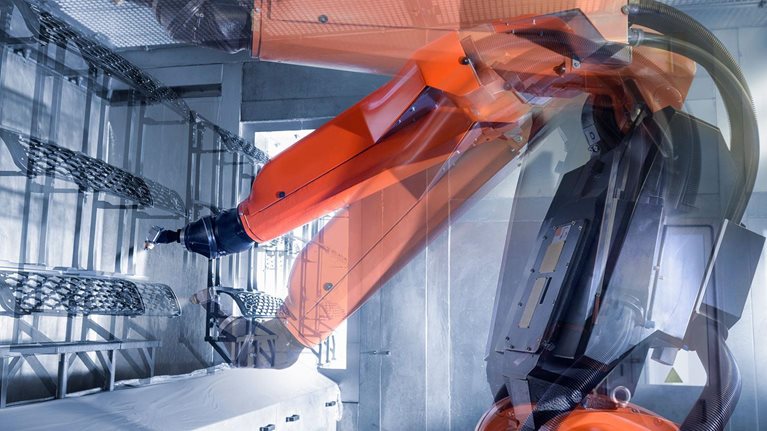What sort of workplace should we expect in the future? How will automation affect jobs? How benign is the so-called gig economy? And what will it take for governments and companies to create “better” work? James Manyika, chair of the McKinsey Global Institute (MGI), sat down recently to discuss these and other issues with Matthew Taylor, chief executive of the London-based Royal Society for the encouragement of Arts, Manufactures and Commerce (RSA), following publication earlier this year of an independent review of employment practices in the modern economy, which Taylor led.1 What follows are edited excerpts from their conversation. (An extended video feature of the discussion between Manyika and Taylor appears at the end of this article.)
Stay current on your favorite topics
Flexible practices
Matthew Taylor: Overall, the UK does very well on the quantity of work, and we provide a lot more flexibility than many other labor markets. One of the things we’ve been looking at has been the widespread rise of the independent-work, or the gig, economy; the phenomenon has been there for a very long time but it has become particularly visible where it’s digitally enabled, where people are doing car-ridesharing services or other kinds of things like that.
When self-employment growth started in the UK after the global crisis, there was a sense that people were choosing self-employment because there were no jobs available. It was involuntary. But actually, as the economy has improved, self-employment has not fallen. It is continuing to rise, though perhaps not at quite the same pace.
We are seeing more people working postretirement age, and wanting to work in a way that they can control. We are seeing more people who simply want more autonomy and flexibility in their lives, in the way that self-employment can offer it. New digital platforms facilitate that: they make it easier for people to work in exactly the way they want to work. The challenge is to make sure that we exploit that opportunity to give people the kind of work they want, in the circumstances they want it, in a way that is fair and sustainable.
James Manyika: I agree. Some of the research we’ve done about independent work and the gig economy—we’ve looked at five or six countries including the UK and the United States—shows that the majority who do independent work actually do it because they prefer it.
Matthew Taylor: About two-thirds.
James Manyika: They prefer the flexibility and the independence. Quite often, these are people with unique skills who find that they can deploy them across a much larger number of users, or customers.
But about a third are doing this out of necessity, and the necessity comes in a couple flavors. Either because they actually can’t find traditional employment, something you find in countries like Spain. Or they’re doing it because they don’t earn enough from a full-time job and are trying to supplement their incomes. So you find that this other third is concerned about income stability and the variability that comes with that. Portability of benefits tends to affect even those who prefer the flexibility, but it becomes very acute for the ones who don’t.

Workforce transitions in a time of automation
Good gigs, bad gigs
Matthew Taylor: There are two additional concerns that people have about gig working. The first is that we might see the emergence of very, very powerful companies that then have a kind of monopolistic position. And secondly, what is sometimes called the Uberization of jobs. One of the things we heard in our visits to people around the UK [when writing our report] was that business models were being undercut by gig working.
So, for example, at one hearing we heard from the head of a removals firm [a company that transports people’s or companies’ possessions when they move to a new home or office]. He told us he was employing people and paying their pensions. This is what he’d always done. But now he is competing with a removals firm down the road that is pretending that the men who work there are self-employed. I would say that is erroneous self-employment, but they were claiming and getting away with the idea that they were self-employed.
James Manyika: It’s important to look at the other side of that, too. With a lot of independent work in the modern gig economy, there’s usually a very large group of happy users and consumers of these services. Whether it’s a car-ridesharing or any of these task-oriented services, quite often that need was either too expensively served with other traditional mechanisms or not served at all.
You’ve seen examples where services now pop up in places where the traditional versions didn’t previously exist, whether it’s places where taxis never used to go, poor neighborhoods, or places where you couldn’t find accommodation.
Matthew Taylor: I think this is exactly the point. These new technologies—sharing, gig work—offer enormous opportunities, not just in terms of improving the quality of service, but in terms of giving people flexibility and potentially disintermediating. The people who provide these services can own the platform that they use.
We could see the rise of mutuals and cooperatives and new business models based on the fact that you don’t need a headquarters and all the bureaucracy that goes with it. You can just have a place and an algorithm. And you can start to enjoy the economies of scale that come with that. But we need to do this in a way that is fair to those workers, fair to the market as a whole, and also sustainable in that governments need taxes.
What can companies do?
James Manyika: The question for employers is how do they think about giving their workers the kind of flexibility that they need—choices about working hours, working conditions, working style?
The other thing that companies need to think about—and this might also even include the platform companies—is how do they provide a mechanism for ratings or benefits to move around with workers? How do they help workers stabilize their incomes, because we know when people are on these platforms, one of the biggest concerns is the variability of incomes.
Matthew Taylor: There’s a difference between two-way flexibility, which these gig platforms often provide—as a worker you can choose exactly when you want to work—and one-way flexibility. We have a problem in the UK with one-way flexibility, in which organizations basically are trying to transfer risk onto the shoulders of the most vulnerable workers—for example, in forms like zero-hours contracts or lower-hours contracts. Here the employer says, “I can only guarantee you two hours a week, but I’ll normally want you to work 30 hours a week.” That means if there’s any downturn, they can immediately throw that risk onto the worker. It also means that workers have fewer rights around, say, unfair dismissal and may feel that if they stand up or question decisions, they won’t get any hours in the future.
The opportunities, though, are huge. There’s a major supermarket group in Britain looking at an app that enables their workers to work overtime in any store they want to. If they are working in a particular part of the store, those workers will know what other parts of the store they could work in, given the skill set they’ve got. This is opening up to lower-paid retail workers the kind of flexibility that middle-aged IT consultants enjoy.
The importance of ‘good’ work
James Manyika: Is the quality-of-work issue really about incomes, or is it about other things?
Matthew Taylor: It’s a great question. What do we mean by “good” work? We know that wages matter to people, particularly those who are less well off. People are less concerned with the relationship between their wage and the superrich than they are between their wage and the person who might be one step above them in hierarchy, for example. So people want to see a decent wage and they want to see fairness. But once you move beyond that, overall surveys show that people say pay is a less important part of what determines whether work is good than it used to be in the past.
People want a sense that their work is meaningful, that they are doing something useful, something that they can feel proud of. They want autonomy, to feel that they are able to make judgments and make choices at work, that they are not simply a cog in a machine. You could call it mastery. The sense that, “I am getting better at something, and in getting better at something, I am enabling myself to have more choices in life as a consequence of the job that I’m doing.” And then there’s teamwork, camaraderie, the sense that I am part of an organization that is inclusive and fair.
We need to show a lot more imagination about how to bring those things to lower-paid, lower-skilled jobs. Many of us who are middle class and work in great organizations are used to this. But there’s no reason why jobs in caring, in retail, in security, or transportation can’t have those qualities, if we’re clever about the way in which we manage our organizations.
James Manyika: At MGI, we’ve looked at the income part. And we know that one of the things that’s changed dramatically in most advanced economies is that the rate of income progression has just stalled. Huge chunks of workers in these countries have seen their incomes stagnate and decline.
If you compare decades previous to 2005 and ask what proportion of households in most advanced economies saw their incomes stagnate or decline, it was in the single digits; for the United States it was less than 2 percent. Whereas if you look at the period from 2005 to 2014, for the US, that number was 81 percent.2 For the UK, it was 70 percent. In previous decades, you’d have said that even though we had waves of inequality, at least most people’s situations, the vast majority of them, were progressively getting better.
Matthew Taylor: Maybe we now have a generation of people who have got out of the habit of thinking they’ll be better off next year than they were last year. Maybe that’s leading to kind of a postmaterialism with people saying, “Well, if I no longer aspire to be individually rich, what matters to me is that at least I can live in a society that looks after people, and where I feel that there is a hospital there when I need it, a school there when I need it.”
James Manyika: I’d be curious in this sense to what extent, say, the UK is different from the United States. In the United States, some sociological research suggests that how people feel about themselves and how well things are going has got less to do with what I might call postdistributional income and living standards—when you’ve taken into account the disposable income after tax and other government transfers and distributions—and more to do with market incomes, meaning what they’ve actually earned by doing something in the marketplace.
When we showed some of this research to sociologists, they said, “Of course, this makes sense in the context of the United States. People have never voted on the basis of the postdistributional effects, but more on the market-income effects, which means am I getting better off or not?” So raising minimum wages, raising incomes, making sure people are earning more as they work—that’s going to have a bigger effect on how people feel about themselves than simply solving the postdistributional standard of living.
Matthew Taylor: Many voices for some time have argued that we have got to get off the growth treadmill, but those have been voices in the wilderness. We’ve seen the illnesses of affluence, whether it’s obesity or mental health or anxiety. What I find intriguing is this sense that maybe we are at a turn in which people are starting to say to their policy makers—and you’re right, Britain may be very different from America—“Don’t promise us that we’re going to be 2 percent better off every year. That’s a hollow promise. Promise us that we will live in a society that actually works, where it feels as though it’s a good place to live. It feels as though our lives have a quality to them; we have flexibility; we can balance work and family life.” After all, we have always known that in mature democracies, once people reach a certain level of affluence, the relationship between wealth and well-being becomes very thin.
Changed expectations?
Matthew Taylor: We talk about living standards, and we simply see it in terms of disposable income with some kind of inflation deflator. But actually, 20 years ago, in order to have access to the world’s libraries, in order to have access to the best films, the best shows, in order to be able to communicate with people on that side of the world, you’d have had to have been very rich. Now you just need to have a mobile-phone contract.
James Manyika: When we look at things like technology and globalization, by and large, they’ve given us choices and utility and a whole set of things. But as one political scientist reminded me the other day, he said, “Well, you forget one thing, which is that people don’t vote as consumers; they vote as workers.”
If people voted as consumers, we’d all be fine because we’ve delivered choice; we’ve delivered the Internet; we’ve given them all these things that have made life infinitely better: access to education, entertainment, all the rest of it. If that was the question, we’d all be fine. The problem is, when people express their points of view as voters, by and large, they’re voting mostly as workers.
Impact of technology
James Manyika: Back in 1964, President Lyndon Johnson commissioned a report and a study, the blue-ribbon National Commission on Technology, Automation, and Economic Progress, to look at automation and technology in work. I remember one striking conclusion captured in a phrase that said that technology destroys jobs, but not work. And the reason why that’s interesting is that there are still lots of things to be done.

Technology, jobs, and the future of work
Matthew Taylor: We’ve done a lot of work at the RSA on the impact of automation on low-paid, low-skilled jobs. And I think our argument would be that a lot of the hype—that about 30 percent or 20 percent or whatever number of jobs is going to dissipate—isn’t particularly helpful. Those predictions have, generally speaking, been wrong in the past. I think you need to look at it in a much more nuanced way. It’ll be less about whole jobs going; it’ll be more about the nature of the tasks changing.
What I slightly worry about at the moment is that in our breathless talk about robotics and artificial intelligence [AI], we lapse into a kind of technological determinism that says that human beings must do whatever the robots and the AI make possible. And I want to say, “No, let’s start from the notions of good work and good lives, and then see how can this amazing stuff enable us to take the drudgery out of work, but leave the stuff that’s really interesting?”
How can it make public services much more efficient so we can improve peoples’ quality of education and healthcare? We’ve had a lot of conversations at the RSA that start with numbers and technology and its possibilities. They nearly always end up, within an hour, with people talking about politics and talking about choices.
Important choices
James Manyika: What do you think are some of the most important choices that we as a society will have to make?
Matthew Taylor: I think we need to make choices about what we invest in. It is a very big argument, of course, but we tend to underplay the role that government has historically played in technological innovation. We need public–private partnerships, and I think government plays an important role in issuing and supporting challenges to entrepreneurs and innovators about the kinds of problems we should be solving: green energy or more efficient forms of care or better types of healthcare.
Whatever we do with machines, we don’t want to get to a stage where human beings are the slaves.
And I think we’ve got to worry about market power. I know that often the people who run these firms, they’re young and they’re funky and they give lots of money to charity, and they seem well-meaning. But let’s go back to what we know about what happens to monopolies in the end. This technology needs to be available to lots of organizations, lots of people. It doesn’t need to be hoarded by a small number of extremely rich corporations.
James Manyika: And when you think about that question of power, do you think it’s the same questions about power that we worried about, say, 100 years ago?
Matthew Taylor: Some of the things we worried about with monopolies in the past don’t apply in the same way as they do now, but there are new things. So, 100 years ago people were worried about price gouging. Now they’re worried about personal information; they’re worried about intrusiveness. We’ve never had corporations that know so much about us as today’s corporations do. So we need a conversation about corporate power in the modern world. Not one that is antagonistic to any individual company, but one that asks deep questions about what we should be concerned about.
James Manyika: When we think about AI and machine learning and what these technologies can do, I worry about things like bias: for example, quite often there’s inherent bias in some of the data. Amplifying what may historically have been human biases into these algorithmic biases has enormous scale effect.
Matthew Taylor: I don’t think it’s healthy when democratically elected politicians feel that they can’t really stand up to corporations at a national level, or even at a European level.
I would also worry about wealth. I would worry about the amount of money these corporations have salted away. And I would make a prediction that if we had another global economic downturn, the public’s attitude would be, “We’re having your money.” I think these corporations need to think about whether, if the world was suffering again, the amount of money they’re sitting on would be tolerable to people.


